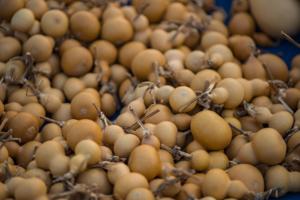How to Trim Pot Plants: A Complete Guide
Trim is an essential process in taking care of your pot plants. Trimming helps control the size of the plant, improve its health, and increase its yield. Additionally, by trimming regularly, you'll ensure that your pot plant gets better access to light and airflow, leading to bigger and better buds.
Trimming Supplies
Before you get started, make sure you have all the necessary equipment. You'll need a good pair of pruning shears, a small set of pointed scissors, sterile gloves, and rubbing alcohol. You should also have a clean workspace where you can easily access your tools and plants.
Trimming Technique
The first step in trimming your pot plant is identifying which leaves and branches to remove. Typically, you should remove any leaves that are blocking light from reaching the lower parts of the plant. You should also look for branches that are growing too close together, as they can block airflow and prevent your pot plant from growing evenly.
To make a clean cut, you should always use pruning shears. Begin by cutting the branch at an angle, about ? inch (0.6 cm) away from the stem. Be careful not to damage any other parts of the plant in the process. If you notice any buds growing near the cut, remove them too to reduce stress on the plant.
After the branches are removed, clean your pruning shears with rubbing alcohol to prevent the spread of any bacteria or fungus. It is also important to clean your gloves to prevent any disease spread.
When to Trim
The best time to trim your pot plant is during the early stages of flowering. At this stage, the plant will be in its most vigorous state, making it easier to handle any stress and helping it heal quickly. However, you should avoid cutting more than a third of the plant's leaves, as this can cause substantial stress and slow down growth.
You should trim your pot plant regularly throughout its growing cycle, especially during the vegetative stage. Regular trimming prevents the plant from growing too tall and ensures the plant focuses its energy on its buds rather than its leaves.
Trimming for Clones
When trimming a clone, it is essential to remove any large fan leaves. Removing these leaves helps the clone focus its energy on developing its roots rather than maintaining large leaves. Additionally, removing any damaged or dying leaves helps prevent disease spread and ensures the clone's health.
The Bottom Line
Trimming is an essential part of taking care of your pot plant. Regular trimming helps control the plant's size, improves its health, and increases its yield. By following the proper trimming technique, you'll be able to maintain the growth and health of your pot plant and enjoy higher-quality buds.

 how many times do yo...
how many times do yo... how many planted tre...
how many planted tre... how many pine trees ...
how many pine trees ... how many pecan trees...
how many pecan trees... how many plants comp...
how many plants comp... how many plants can ...
how many plants can ... how many plants and ...
how many plants and ... how many pepper plan...
how many pepper plan...































